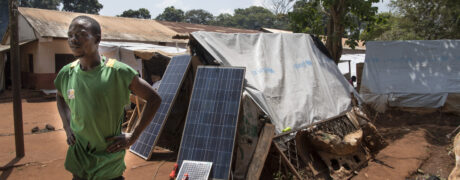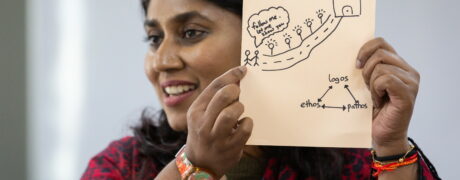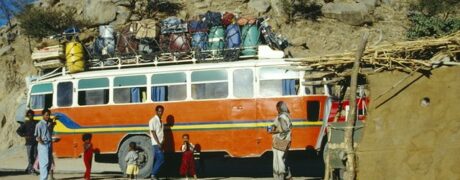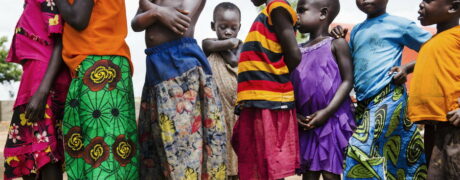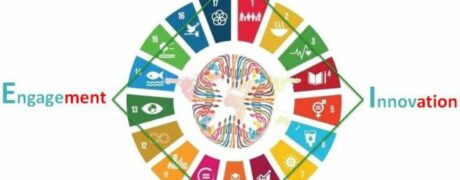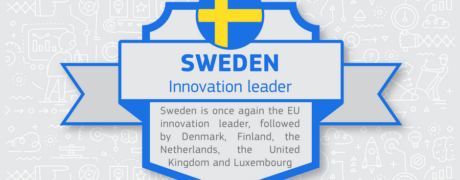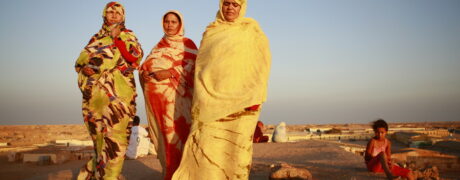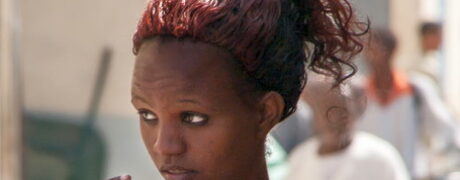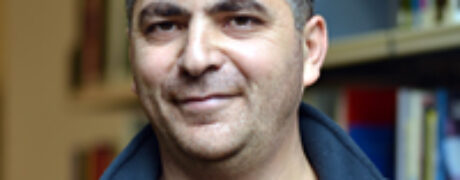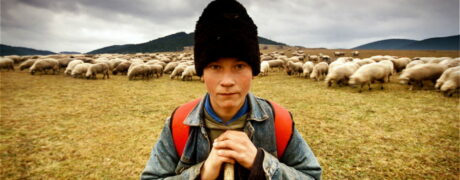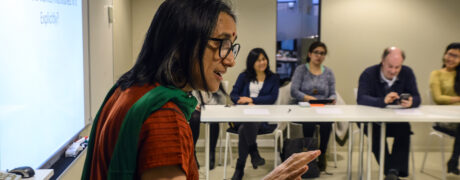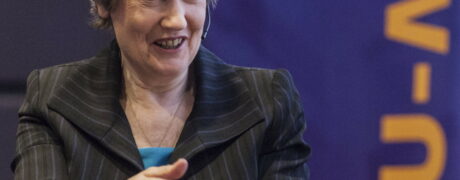- ABOUT US
- RESEARCH
- EDUCATION
- The Graduate School
- PhD Programme
- MSc Programmes
- Capacity Development
- News
- Design and Evaluation of Public Policies (DEPP)
- Design and Evaluation of Innovation Policies (DEIP)
- Evidence-Based Policy Research Methods (EPRM)
- Migration Management Diploma Programme (MMDP)
- Moving the Migration Policy Agenda Forward (MMPAF)
- Online Courses
- Short Courses (Masters)
- Tailor-made programmes
- UNU-MERIT, ITU Academy Training Centre
- Alumni
- Academic Funding
- NEWS
- EVENTS
- PUBLICATIONS
- LIBRARY
News
Land registration in Kenya: Key for development?
17 August 2018
Your PhD revolves around the redistribution of land and its impact on agricultural outcomes; this is timely and relevant given climate change and its impact on food security. Can you elaborate on your dissertation topic? ...
Continue Reading →Beyond moral obligations: From theories to practical solutions
06 August 2018
In the onset of rapidly evolving military conflict, determining responsibility and the most appropriate and effective response is a challenge. In the event of an armed conflict, displaced persons are likely to either be displaced internally or if they have the provisions in place, flee to a neighbou...
Continue Reading →Science for the 2030 Agenda: Why we need an open space for dialogue and partnership
05 August 2018
A guest post by Dr. Lidia Brito, UNESCO Regional Director of Science for Latin America and the Caribbean The declaration signed by the Heads of State and Government and High Representatives, meeting at the United Nations Headquarters in New York, established the adoption of “a historic decision on a...
Continue Reading →Why research HAS to be communicated — ‘R&T’ Malaysia 2018
02 August 2018
Global health — from countering misinformation to managing crises — was the focus of our fifth ‘Reach and Turn’ science reporting workshop, held in July 2018. Co-hosted with our sister institute UNU-IIGH in Malaysia, the guiding theme was simple: that ‘you don’t win hea...
Continue Reading →Survival strategies for fleeing Eritrea
26 July 2018
Eritreans on a bus on the road between Keren and Agordat in Eritrea. Eye Ubiquitous/UIG via Getty Images Most Eritreans understand the horrors that await them as they travel to seek refuge. Researcher Katie Kuschminder reveals some of the coping mechanisms developed in response. For years, Eritreans...
Continue Reading →‘A good place to bridge the gap between research and policy’ — EPRM 2018
20 July 2018
Our course on Evidence-Based Policy Research Methods (EPRM) hones research skills at the highest of levels, including policymakers from national governments and international organisations. Dr. Mindel van de Laar sat down with course coordinator Cristina Mancigotti to discuss her recent experiences ...
Continue Reading →Why give social protection to protracted refugees? Time to refocus responsibilities and moral obligations
18 July 2018
The paradigm of long-term delivery of short-term aid needs to be reconsidered — because the current system is barely functional or sustainable. This implies building a new bridge between humanitarian aid and long-term human development. But what exactly does that mean? A key part of the process is t...
Continue Reading →How to pin down and spin the ‘Circular Economy’ — before it’s too late?
12 July 2018
A joint post by Prof. Shyama V. Ramani and Maria Tomai The many varied possibilities of the ‘Circular Economy’ are starting to enter the public consciousness. But what is it exactly? “Looking beyond the current ‘take, make and dispose’ extractive industrial model, the circular economy is restorative...
Continue Reading →A tall order for Malawi: How diet and education help prevent stunting
29 June 2018
You defended your PhD thesis ‘A tall order – Improving child linear growth’ on 19 June 2018. When you applied to the programme, you were working as a project manager for the UN’s World Food Programme. Was there a link between your activities at work, and the choice to apply for a part-time PhD?...
Continue Reading →Foreign doctorates are attractive — but don’t write off homegrown PhDs
26 June 2018
Introducing more skilled employees into the economy is an important path to development for many middle income countries. That’s why increased and improved training at the top end of the education level – PhDs – is considered so vital. Many countries encourage students to pursue their PhDs abroad in...
Continue Reading →EU Innovation Scoreboard 2018: Sweden top, Germany drops, while China catches up
22 June 2018
The EU’s innovation performance continues to improve, but further efforts are needed to ensure Europe’s global competitiveness. That is, according to the 2018 European Innovation Scoreboard (EIS), co-authored by Hugo Hollanders and Nordine Es-Sadki. This year’s edition reveals a p...
Continue Reading →Trade war with the United States: A positive outcome for Europe?
21 June 2018
Since the beginning of this month, European, Canadian and Mexican steel and aluminium are now also subject to import tariffs in the US of 25% and 10% respectively due to so-called “national security” concerns. It is not as yet a trade war but if the unilateral measures of the United States are not l...
Continue Reading →Rethinking humanitarian aid: A call for humanitarian social protection
20 June 2018
On average in 2017, a person became displaced every two seconds. Figures further indicate that a staggering 68.5 million people were displaced by the end of that year — and of that number 25.4 million were refugees. The majority of refugees flee to neighbouring countries; which tend to be among the ...
Continue Reading →Families’ migration nightmares: Eritreans en route to Europe
19 June 2018
The number of families migrating via the central Mediterranean, the world’s most dangerous migration route, is actually quite low. In 2017, 74% of arrivals in Italy were men, 11% women and 15% children; a striking 91% of children arriving were unaccompanied. There are several reasons why so few fami...
Continue Reading →Strategic planning in Palestine: Why local leaders are key
18 June 2018
You defend your PhD on 19 June 2018. Can you briefly describe your thesis? My research looks into strategic planning within Palestinian local governments. It considers the conditions, factors and dynamics that shape the design, launch and roll out of local strategic plans within fragile contexts. Th...
Continue Reading →Going back to studying while keeping a career: Is it really possible (or desirable)?
13 June 2018
A guest post by EPRM student, Dessislava Ivanova. Most people, especially those with full-time jobs, think long and hard before enrolling on a research training programme. There are many reasons to hesitate. Maybe the last time you studied was years ago; perhaps you’re very busy with your career; or...
Continue Reading →World Day vs. Child Labour: Why Balkan children need social protection
10 June 2018
Ahead of World Day Against Child Labour, a new policy brief by Prof. Franziska Gassman and Eszter Timar weighs up the costs of child poverty in the Balkans. The brief covers deprivation in terms of education, health, and social mobility, before laying out the potential of social protection in buildi...
Continue Reading →The struggle for power & equality: New lessons from Tunisia
05 June 2018
A survey co-led by researchers at UNU-MERIT has found that women’s economic empowerment in Tunisia remains low, in spite of a nationwide strengthening of legal protections. There was progress, however, on women’s leadership and time use thanks to improvements in education and training. T...
Continue Reading →Do you know gender? Do you feel safe? #IWD2018
29 May 2018
Do you know gender? I thought I did. I knew what it basically meant: man and woman, boy and girl, lion and lioness etc. And I had helped women and girls all my student and professional life as a social activist and was confident that I knew what had to be known. So I felt safe. That was until as a U...
Continue Reading →Our day with Helen: Fighting for equality, leading by example
23 May 2018
“Does having women in power empower women per se?” This was the bold question put to Helen Clark, former chief of UNDP, during a one-hour debate co-hosted by UNU-MERIT and Maastricht University — and it was a question that got a suitably robust response! PhD fellow Ibrahima Kaba,...
Continue Reading →© 2024 UNU-MERIT | Maastricht University



